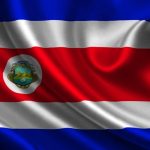
National Women’s Day
Observed on August 9th in South Africa annually, National Women’s Day is a holiday that commemorates the national march of over fifty thousand women on this day in 1956 to challenge the Pass Laws that arose from the enactment of The Population Registration Act.
Under this egregious act, citizens were required to carry papers on them at all times. If they couldn’t produce their papers on demand from the authorities when stopped, they could be arrested on the spot.
Although the act wasn’t officially repealed until June 17, 1991, the national march came to symbolize the strength, resolve, and determination of women all over South Africa. Because of their resolve, they are destined to be remembered for a long time to come.
The History Of National Women’s Day
In South Africa, the Pass Act of 1952 was the most widely used tool of Apartheid. It required all black South Africans over the age of 16 to carry a passbook, also known as a dompas, everywhere they went. If they couldn’t present the dompas on demand to the police when stopped, they could be arrested on the spot.
This resulted in over a quarter of a million blacks being arrested for minor offenses under the Pass Laws every year. The document issued to people under the Pass Laws was similar in function to what a passport document would be. Inside the document were the name of the bearer, picture, signature, address, and employer information.
There was even an evaluation by the employer that described the conduct of the document’s bearer. Under the laws at the time, an employer could only be someone who was white. If the passbook was improperly filled out or was missing information, that could be grounds for the person bearing it to be arrested and imprisoned.
These passports became known as dompas, or essentially domestic passports, and would sometimes be referred to as “dumb passes.” In response to this law, there was a staged march on the Union Buildings of Pretoria on August 9, 1956. Over twenty thousand women of all races showed up for the march to protest against the Pass Laws and Urban Areas Acts.
This protest was led by Lilian Ngoyi, Rahima Moosa, Helen Joseph, and Sophia Williams. During their march, the women left 14,000 petitions with the Prime Minister. There was also a 30-minute silent protest as well, after which the crowd sang songs to honor the occasion and to ensure that their voices were heard.
The protest was peaceful but it showed the power of people when they stood together. Although it took another 35 years before the Pass Law was repealed, the momentum started by this initial protest made a difference. August 9th would officially become National Women’s Day in 1995 and has been observed ever since.
This holiday is used to focus the spotlight on the challenges that African women still face to this day. Challenges include sexual harassment on the job, domestic violence, unequal pay, and girls not being allowed to go to school.
The History Of The Population Registration Act & Pass Acts
Apartheid was a system of institutionalized racial segregation that existed in South Africa and South-West Africa from 1948 through the early 1990s. This system was characterized as a political culture based on white supremacy. This system ensured that South Africa was dominated socially, economically, and politically by the minority white population of the country.
Under this system of social stratification, whites were at the top of the hierarchy, Asians were next, followed by Coloureds, and then black Africans. In South Africa, apartheid was divided into petty apartheid and grand apartheid. Petty apartheid involved the segregation of social events and public facilities, and grand apartheid involved dictating employment opportunities and housing by race.
In 1949, the first apartheid law passed was the Prohibition of Mixed Marriages Act. This law prohibited marriages between Europeans and non-Europeans and was one of the first laws to be passed after the National Party rose to power in 1948. This was followed by an amendment of the Immorality Act—an act that originally was passed in 1927 and prohibited sex between whites and blacks.
This law was amended in 1950 to prohibit sex between Europeans and non-Europeans. This extended the prohibition of intercourse between whites and blacks to a prohibition of sexual intercourse between whites and blacks, Asians, or Coloured people.
The Population Registration Act of 1950 classified all South African citizens into one of four racial groups based on known ancestry, appearance, socioeconomic status, and culture. These four racial groups were black, white, Coloured, and Indian.
As a result of this law and other laws passed afterward, approximately 3.5 million black Africans were forcibly removed from their homes and into segregated neighborhoods. These evictions are some of the largest mass evictions performed in all of modern history. Pass Laws in South Africa go back even further than these laws, however.
They can be traced back to the mid-18th century in the Cape of South Africa when slaves moving between urban and rural areas were required to carry special passes that permitted them to travel. Any Africans who were stopped and didn’t have these papers could face immediate arrest.
After slavery ended, these laws were used for two main purposes. The first purpose was so that the white minority could maintain control over the black population, particularly in areas designated as “white areas.” And two, they were used to provide cheap labor within these areas as many of these black Africans were placed into work camps.
For the majority of the time that Pass Laws were in effect, they were used to target African men. That’s because previous attempts to include African women under the scope of these laws resulted in mass protests. However, during the 1950s, there was an increased push to include African women under the scope of these laws. Four years after the passage of the Pass Act of 1952, the women’s march took place on August 9, 1956.
On July 23, 1976, the South African government lifted the requirements that South Africans carry passbooks as the starting move to remove some of the apartheid laws on the books. However, the pass law system wasn’t officially repealed. It wouldn’t be repealed until April 23rd, 1986, with the passage of the Abolition of Influx Control Act.
Observing National Women’s Day
In 2006, on the 50th anniversary of National Women’s Day, a reenactment of the 1956 march was held. Every other year, this holiday is marked by increased participation in people advocating for women’s rights, trade shows and job fairs, and various symposiums on women and labor issues.
It’s a day on which women are encouraged to use their voices to advocate for their own rights and the rights of women everywhere. Even though the issues might change slightly with each passing year, there is still a lot of work that has to be done to ensure that women’s rights are secured now and in the future.








